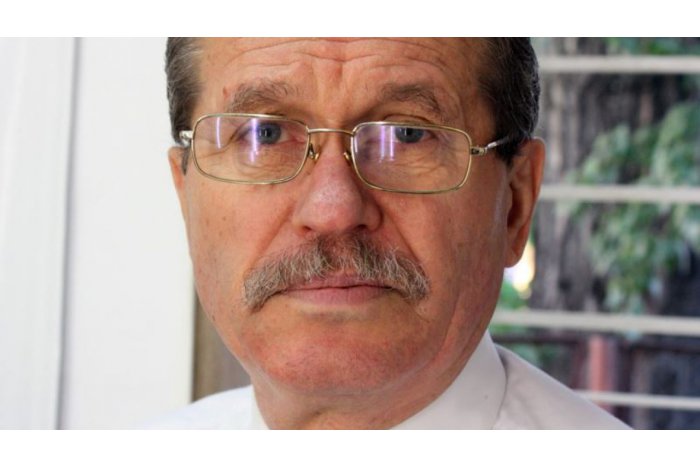Former MP of Moldova says Declaration on Sovereignty expressed people's will to be master in its country
16:23 | 23.06.2020 Category: Political
Chisinau, 23 June /MOLDPRES/ - University professor, PhD in constitutional law, the former head of the Commission for Human Rights and National Relations in the first parliament of Moldova, the author of the draft Declaration on Sovereignty Alexandru Arseni has said that this declaration expressed, in fact, the will of all citizens to be sovereign and masters on all assets of the people.
Contacted by MOLDPRES, Alexandru Arseni noted that this had been the essence of the Declaration, as the idea of Sovereignty had prevailed in the programmes for the office of MP.
”Let us not forget the song of our heroes Doina and Ion Aldea-Teodorovici titled, Suveranitate (Sovereignty), under the folk and spiritual aspect; yet, we, the lawmakers, found the legal and political formula of expressing this sovereignty. We formulated from the legal viewpoint and we gave force of supreme will of the people, i.e. the supremacy of the people’s will on the territory of Moldova. The people’s will is not shared with anybody, either with another authority, neither from inside the country nor from outside and the independence both in the country and on the external stage, of the people’s will. This is what the Declaration on Sovereignty actually meant from the legal, state and political viewpoints. The people was within the Soviet Union. Each man was an element of the dictatorship political system of a Communist party. Yet, we did so that the citizens of Moldova be masters in the country from the legal, state and political viewpoint,’’ the author of the Declaration on Sovereignty said.
According to Alexandru Arseni, this fact found its development in the following acts adopted: the decree on the state power, separation of powers, citizenship as foundation of the state’s existence, etc.
”Proceeding from the Declaration on Sovereignty, the people being sovereign already, i.e. master in the country and holding the power, they ordered us, the MPs, to give legal aspect of the Declaration on Independence. Thus, the parliament adopted two fundamental documents: the Declaration on Independence of the sovereign people from the Soviet empire and this culminated with the adoption of the anthem Deșteaptă-te, române! (Wake up, Romanian!) as national anthem. These epoch-making documents were legislated after we had adopted the concerned act in parliament, by the unanimous vote of the Great National Assembly, which is the supreme will and which is not subjected to revision. Afterwards, in March 1993, we adopted the draft Constitution, which in 1994 was mutilated and passed by the then anti-national and anti-democratic parliamentary majority. It deviated from the Declaration on Sovereignty, from the decree on the state power, from the Declaration on Independence, legislated by masses through thee unanimous vote of the official delegates to the Great National Assembly. The Declaration on Independence and the Anthem Wake up, Romanian! were legislated, which the Democratic Agrarian Party and the parliamentary majority had no right to amend, as they moved against the general will of the people. There are three signatures of on the text of the Declaration on Sovereignty: of Parliament Speaker Mircea Snegur (in September 1990, he was elected President of Moldova), presenter of the Declaration, departed professor Ion Borsevici and the draft’s author, the undersigned,’’ Alexandru Arseni also said.
The Declaration on Sovereignty was adopted on 23 June 1990.

